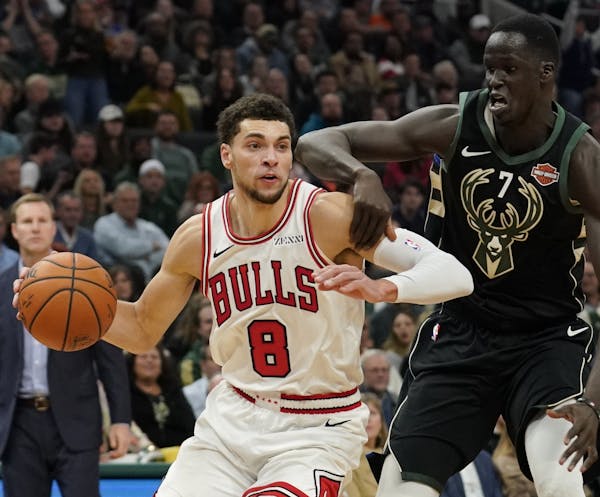Sunday at Target Center was the antithesis to the modern NBA: the Memphis Grizzlies.
Whereas the rest of the league is trying to play faster and with more pace, the Grizzlies, who defeated the Wolves 100-87, are trying to slow you down and make you work for every inch of open space. Their brand of basketball can be grueling to watch at times, but so far it has been successful, with Memphis off to a 10-5 start. The Wolves had their second-lowest offensive output of the season against the Grizzlies and shot just 39 percent. If you were wondering if Sunday's game was an accident, it wasn't.
"It was a conscious decision that we made to play this style of basketball," said coach J.B. Bickerstaff, a former Gophers player and Wolves assistant. "We keep looking around the league and everybody is trying to play the same way — everybody wants to run. As a coaching staff we sat down and tried to figure out a way we could be unique."
They're unique in being the slowest team in the league. The Grizzlies average 96.7 possessions per game, more than 10 fewer than league leader Atlanta at 107. While the Grizzlies have slowed down, the Wolves have joined this fast-moving mob. Their 102.9 possessions per game is eighth highest and is a significant increase from a season ago, when they were 22nd in pace at 96.8.
As a whole, the NBA is averaging 100.3 possessions, three more per team than a season ago. The Wolves have a couple of theories behind this. One seems obvious. The new rule in which the shot clock resets to only 14 seconds instead of 24 after an offensive rebound might be adding a few possessions to games. One of the goals after an offensive rebound is to try and get an open three-pointer while the defense is scrambling. That's still relevant, but offenses can't simply kick the ball out and reset anymore.
"It's been an adjustment and you can see it," Wolves center Karl-Anthony Towns said. "You don't see any NBA games now under 100 points. It's usually 120s, 130s we're talking about. So, the game is changing."
Faster pace might also result from the officials' emphasis on freedom of movement, making it easier for offenses to move up and down the floor. But coach Tom Thibodeau and guard Jeff Teague had their own takes on why it's faster. Thibodeau said it has to do with more offensive-minded personnel groupings taking the floor.
"In general it's been trending [faster] for a number of years now," Thibodeau said. "You're also seeing the skill set of the players where the size has changed. With power forwards now, at some point in the game, you're going to have a small forward or even an off guard at the four. And it's much more common now to see multiple point guards on the floor at the same time."
According to Teague, everybody on the floor can be a scorer at any time. That's different from how it was when first entered the league in 2009.
"You had one designated scorer. The rest of the guys were like role players," Teague said. "Now everybody on the court is capable of making plays, scoring the basketball, pushing the ball. It's a funner game for the fans to watch. You have more points and a faster pace."
Well, except for Sunday.
Chris Hine covers the Timberwolves for the Star Tribune. Twitter: @ChristopherHine. E-mail: chris.hine@startribune.com

Souhan: This is KAT's chance to prove Flip was right
NHL PLAYOFFS: 'It's wide open' is the theme as the race to the Stanley Cup begins
Debate over tight end value hovers over Brock Bowers' draft prospects

